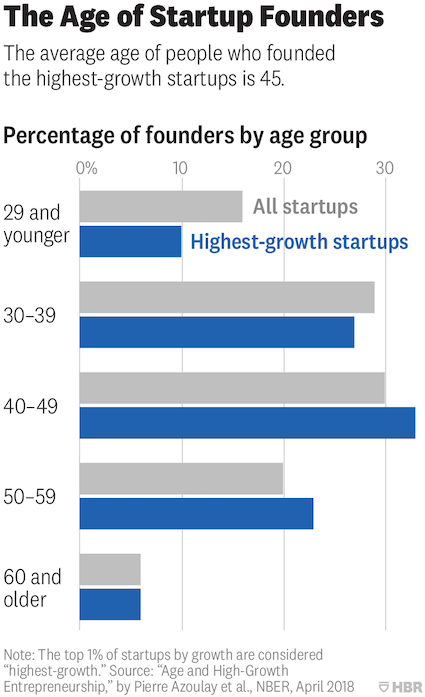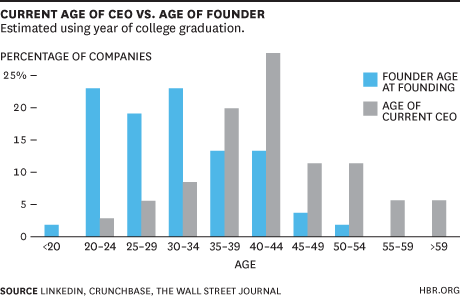Gen X is the generation that got stuck between two transitional generations: Baby Boomers and Millennials, which is a curse in white-collar professional life. Let me explain to you why.
Baby Boomers is the post war generation, and they learned to take politics and power games seriously. They are sceptical, they do not give trust easily, they have their biases and reservations. On the other hand, they love to live a good life. As their hardworking parents couldn’t give them enough time but all possible consumables to enjoy instead – they love to have possessions, they care about their life standards, they spend a lot… Although they are wealthier and healthier than all of their ascendants, they refuse to retire as long as they are productive and well paid to afford a good living. As a result, the senior leadership teams have more and more Boomers on board and average age of an S&P 500 director became 63 already (It was 61 in 2007).
In the other corner of the ring, Millennials represent a generation which was born into a Digital Dream. It is almost like a e-Wild West: the young entrepreneurs who have nothing to lose but seeking for a shortcut to prosperity can start their own businesses easily. They neither need to understand nor follow the old corporate norms that have been around since the industrial revolution. So when it comes to entrepreneurship, they take great pride in how they are doing business, although sometimes it may mean ignorance of the basic rights we -as employees- fought for.
The interesting thing is, the Boomers -who have trust issues- mentor and sponsor more and more “OK, Boomer”s whom most of them feel sympathy for. Eventually, Gen X get promotions 20%–30% slower than Millennials, and although they tend to be more successful as entrepreneurs, Millennials can get the first round investment much more easily.
Maybe Boomers find Millennials too young or too naive to be a threat to them, or maybe the history repeats itself: Baby Boomer spoils his millennial granddaughter, but never ever spent enough time with his Gen X daughter… When you put this into a business context, it hurts: Baby boomers invest much more time and money into Millennials than Gen X. Period. Either through investments or leadership assignments… Boomer sometimes doesn’t even understand a word Millennials say, and he does not challenge them. So instead of empowering a Gen X, he empowers a Millennial and puts the Gen X in charge to do the damage control and goes back to his boardroom for a nap.
In such a corporate environment, the responsibilities and the ‘efficiency’ burden falls onto Gen X shoulders, the power and wealth is always under Baby Boomers’ control to give to Millennials who are made to believe that their way is always the better way.
And this is the story if there is a trusted Gen X featured in the casting to do the dirty work. In many of the startups Gen X does not even exist. Millennial Boss ain’t get an Efficiency Police in the first place: What is more efficient than not recruiting experienced -and expensive- talent y’all?
This ‘smart’ choice changes the unemployment rate statistics in favor of the cheaper and younger inexperienced talent vs. experienced ones. The marginal value of having +10-15 years of experience is insignificant now:

In an early or small startup environment, there is a larger but indirect influence area for the Boomer, more leg room for the Millennial and more time to spend with the family for Gen X.
Why isn’t white-collar Gen X giving a good fight? There may be lots of reasons but I can give three good ones on top of my mind:
1. Gen X has terrible experience in entrepreneurship:
While Boomers had started their career in abundance of resources and lots of success stories within the 3rd stage of the Industrial Revolution, Gen X was born into the fear of losing their jobs due to a force-majeure like 9/11, Dot-com bubble, 2007 global crisis… Therefore Gen X employees prefer not to take massive risks in their career choices and develop survival tactics instead. When things go down some choose to network & suck up to keep their posts, some bullsh*t & pretend and some simply regress & wait.
2. Gen X is not the ‘cultural fit’ anyways:
The young founders and young leaders in workplaces tend to hire people like themselves as a continuation of that college psyche. They like that Baby Boomers support them behind the scenes but they don’t want to have the experienced, picture perfect, slow, judgemental, boring, intimidating, etc. ‘adults’ in their habitat. They do not want to be told what to do anymore, they want to show the whole world that they can do better.
3. Gen X is willing to spend time with their families:
As the global health standards change, families acknowledge the new norms of wellness, happiness and parenting. They try to provide a happy home for their families instead of providing what money can buy. Gen X do not want to make the same mistakes as their parents did and they do not want to work for endless hours for days. Therefore neither startup ‘after hours’ nor corporate power games attract them.
I am not even discussing about the humanitarian aspect of this evident ageism and its future implications, but – What is the cost of burying lots of experience and knowledge of one generation and starting from scratch? To be able to give an answer, we have to understand what qualities Gen X brought to life and who will govern those qualities from now on.
So what is your opinion on that? Why do global economies need Gen X to come to the office tomorrow?




